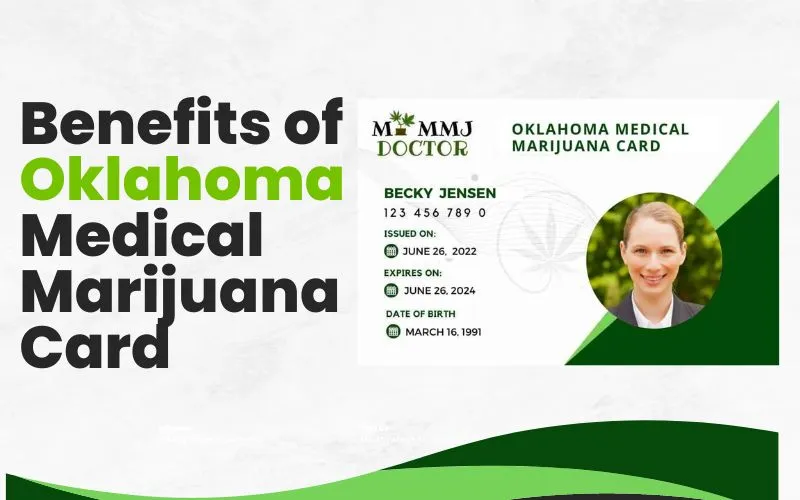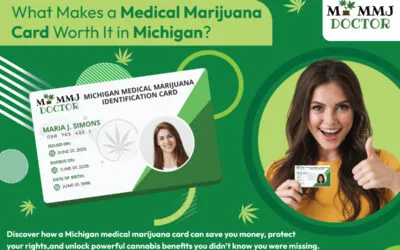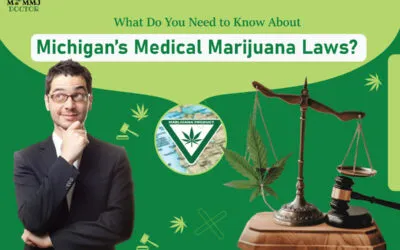The Benefits Of Having A Oklahoma Medical Marijuana Card

With the help of a state-issued identification card known as a “medical cannabis card” or “medical marijuana card,” a patient with a doctor’s recommendation can purchase, possess, or grow cannabis for medicinal purposes even though the FDA has not yet evaluated the safety and effectiveness of marijuana.
Only a state or county with medical cannabis programs may issue these cards. A patient often pays a fee to the government to get a medicinal marijuana card.
Why Should You Get an Oklahoma Medical Marijuana Card? (Benefits)
In 2018 voters authorized Oklahoma State Question 788, or the Medical Marijuana Legalization Initiative, through which the Oklahoma Medical Marijuana Act (OMMA) administers the licensing, registry, approval, and distribution of medical marijuana. OMMA is also responsible for issuing medical marijuana cards to the state’s patients.
Medical Reasons
Every illness ought to be treatable, just like an ordinary headache. According to research, marijuana provides therapeutic benefits for several diseases and disorders. Medical marijuana’s advantages, small or big, can relieve suffering patients from trauma. According to the Oklahoma Medical Marijuana Act (OMMA), several medical conditions, listed below, qualify a person to register as a patient in Oklahoma.
- Agitation of Alzheimer’s disease
- Amyotrophic Lateral Sclerosis (ALS)
- Any chronic or debilitating medical condition, disease, or treatment for one that causes cachexia or wasting syndrome,
- Cancer
- Chronic pain, such as from migraines or arthritis,
- Crohn’s disease
- Glaucoma
- HIV or AIDS
- Hepatitis C
- Post-traumatic stress disorder (PTSD),
- Severe nausea,
- Severe or persistent muscle spasms, such as those associated with multiple sclerosis,
- And Seizures, including epilepsy.
Protect Your Profession
The OMMA act provides strict “no discrimination” against employees based on their status in the MMJ registry. An employer cannot hire, fire, or penalize an employee solely on the basis of medical marijuana consumption.
As of 2022, employers can refuse to hire an applicant for a “safety-sensitive” (a job where the tasks or responsibilities could affect the employee’s health) position if the applicant tests positive for marijuana in their pre-employment drug screen. That doesn’t mean the employer won’t hire a medical marijuana patient for a safety-sensitive position.
Legal Shield
Only patients or caregivers registered with OMMA can legally possess medical marijuana. Patients and caregivers are permitted to possess up to
- 3 ounces (85 grams) of usable cannabis on them
- 8 ounces (227 grams) at home
- 1 ounce (28 grams) of cannabis concentrates
- 72 ounces (2 kilograms) of edible products
Also, patients who choose to cultivate plants on their own can possess - 6 mature plants
- 6 seedlings
The otherwise cultivation of any number of marijuana plants is illegal in the state. Possession of plants or seeds for non-patients is punishable by fine and imprisonment.
You can navigate here for more information on Oklahoma Medical Marijuana Laws.
Access to Any Age
To consume medical marijuana, there is no age restriction. Only if you are under 18 will you require a caregiver (a parent or a legal guardian) who can register on your behalf in the OMMA Program. Your caregiver must be over 21 to become a caregiver and get approval from the diagnostic practitioner.
The original Oklahoma Medical Marijuana Card for an adult patient lasts two years. However, for minor patients, the card expires when the patient turns 18 or after two years, whichever happens first.

Take a Trip
A medical marijuana out-of-state or temporary patient license allows someone with a valid medical marijuana license from another state (issued by that state government) to legally buy, use and grow medical marijuana and medical marijuana products in Oklahoma. It’s available to adults and minors.
However, out-of-state licenses are valid for 30 days. They can re-apply for the temporary card one week in advance of expiry. While applying, out-of-state applicants will need the following:
- Full name
- Residence and mailing address
- Date of birth
- Telephone number and email address
- Information about the out-of-state medical marijuana license
- Patient signature dated within 30 days of the application date
- Required Documentation.
Quality and Quantity
Medical Marijuana is only available to patients through state-certified dispensaries. Dispensaries are registered under the OMMA and should possess a license ($2500 state fee) to deem them valid for selling medical marijuana.
Medical marijuana growers and processors are required to use OMMA-licensed laboratories to test for the following:
- Contaminants and filth
- Heavy metals (testing for lead, arsenic, cadmium, and mercury is mandatory)
- Microbes
- Mycotoxins
- Pesticides
- Residual solvents and chemical residue
- Terpenes
- THC potency
- Water activity and moisture content.
This measure provides evidence that the quality of medical marijuana can never be a subject of doubt.
Closing Statement
The benefits of a medical marijuana card far outweigh the convenience of over-the-counter recreational cannabis use. Consider getting an Oklahoma MMJ Card today with My MMJ Doctor.
Looking To Apply For A Medical Marijuana Card?
Related Articles
How to Get a Medical Marijuana Card in Maryland?
How Can You Obtain Your Medical Marijuana Card in Maryland in 2025?Are you a Maryland resident seeking a way to manage your symptoms naturally? You came to the right place. Maryland has a medical marijuana program that allows eligible...
Benefits You Are Missing Without a Michigan MMJ Card
Top Benefits of a Michigan Medical Marijuana CardIf you live in Michigan and already use cannabis, you likely know it’s easy to access. However, many people don’t realize that having a Michigan medical marijuana (MMJ) card offers additional...
What are the Michigan Medical Marijuana Laws?
What are the Michigan Medical Marijuana Laws?Medical marijuana has been legal in Michigan since 2008, helping thousands of residents manage chronic pain, anxiety, cancer symptoms, and more. But knowing what’s allowed - and what’s not - can...





0 Comments